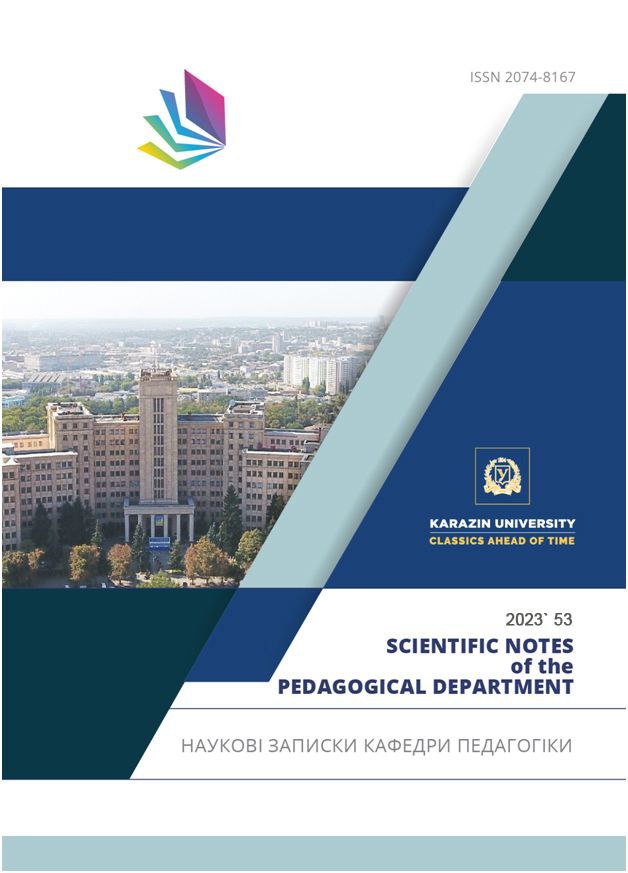Management competence of managers ways of formation and development trends
Abstract
The new conditions of the modern world place increased demands on managers. The development of managerial competence is an integral part of a successful professional career of a manager. This competence includes a set of knowledge, skills and abilities that allow you to effectively solve management tasks in a variety of situations. The article carefully examines the important aspects of managerial competence, paying attention to both the ways of its formation and current development trends. The purpose of the study is to determine the ways of formation and development trends of managerial competence of managers.
The study reveals the importance of digital transformation, flexibility and leadership qualities as key directions in modern management competence trends. A general view of these aspects reveals a comprehensive picture of challenges and opportunities in the formation and development of managerial competence of managers in a dynamic business environment.
The study emphasizes the importance of an integrated approach to training and development of managers, including traditional and innovative methods. It is noted that participation in specialized programs and trainings provides systemic knowledge, mentoring promotes personal growth, and leadership courses form important qualities for effective leadership. Emphasis is placed on real practice as a necessary component of forming experience and strategic thinking.
Overall, the study makes an important contribution to the understanding and practice of managerialrequires a combination of different approaches to achieve success.
Downloads
References
2. Berek, J. (2017). The forms and the methods of managerial competence improvement in modern organizations. World Scientific News, (72), 94-102.
3. Bücker, J., & Poutsma, E. (2010). Global management competencies: A theoretical foundation. Journal of Managerial Psychology, 25(8), 829-844.
4. Charih, M., Bourgault, J., Maltais, D., & Rouillard, L. (2007). The management competencies of senior managers: A look at some OECD countries. Excellence and Leadership in the Public Sector: The Role of Education and Training. New York, United Nations Department of Economic and Social Affairs/International Association of Schools and Institutes of Administration, 25-43.
5. Chursin, A., & Tyulin, A. (2018). Competence Management and Competitive Product Development. Germany: Springer.
6. Collin, A. (1989). Managers’ competence: rhetoric, reality and research. Personnel Review, 18(6), 20-25.
7. Crawford, L. (2005). Senior management perceptions of project management competence. International journal of project management, 23(1), 7-16.
8. Filerman, G. L. (2003). Closing the management competence gap. Human Resources for Health, 1, 1-3.
9. Ghoshal, S., Hahn, M., & Moran, P. (1999). Management competence, firm growth and economic progress. Contributions to Political Economy, 18(1), 121-150.
10. Kolot, A., Lopushniak, H., Kravchuk, O., Varis, I., & Ryabokon, I. (2022). Transferable competencies of HR manager under global socio-economic changes. Problems and perspectives in management, 20(1), 322-341.
11. Marsick, V. J. (1994). Trends in managerial reinvention: creating a learning map. Management Learning, 25(1), 11-33.
12. McCracken, M., & Winterton, J. (2006). What about the managers? Contradictions between lifelong learning and management development. International Journal of Training and Development, 10(1), 55-66.
13. Paulienė, R. (2017). Interaction between managerial competencies and leadership in business organisations. Regional formation and development studies, (1), 98-108.
14. Rigby, D., & Bilodeau, B. (2011). Management tools & trends 2013. London: Bain & Company.
15. Szczepańska-Woszczyna, K. (2020). Management theory, innovation, and organisation: A model of managerial competencies. Routledge.
16. Tas, R. F., LaBrecque, S. V., & Clayton, H. R. (1996). Property-management competencies for management trainees. Cornell Hotel and Restaurant Administration Quarterly, 37(4), 90-96.
17. Watkins, K. E., Marsick, V., & Kim, Y. S. (2011). The impact of lifelong learning on organizations. In Second international handbook of lifelong learning (pp. 859-873). Dordrecht: Springer Netherlands.
18. Wu, W. W., & Lee, Y. T. (2007). Developing global managers’ competencies using the fuzzy DEMATEL method. Expert systems with applications, 32(2), 499-507.
Citations
Influence of leadership style on motivation, productivity, and administrative decisions of managers and executives
Sergiienko Tetiana (2025) Economic Herald of the Donbas
Crossref

